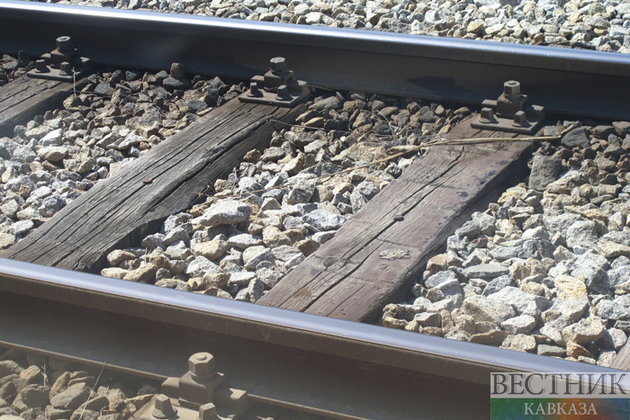In a world of interdependence, geo-economics has become the essential thing for extending cooperation. Most of the countries have started to use nontraditional types of diplomacy to enhance their relations for achieving economic access and other goals. ‘Railway Diplomacy’ is one the interesting forms of nontraditional diplomacy, Modern Diplomacy writes.
Railway diplomacy is a method for supporting the economic priorities of any country within its foreign policy. In this diplomatic approach of state(s) can develop good relations with another by creating a huge network of railroads for gaining collective or mutual economic benefits. Rail diplomacy shows solid geo-economic and geo-strategic signals. Rail is a very resourceful means of land transportation which can ensure subsequent economic opportunities.
Rail diplomacy is not a new phenomenon, it has been operationalized in different regions of the world. It has further pushed international connections and has become an increasingly important factor in foreign policy.
Recently three countries – Pakistan, Iran, and Turkey – resumed the Islamabad-Tehran-Istanbul (ITI) container rail service is the latest example of ‘rail diplomacy’. The ITI container rail service launched in 2009, but was suspended in 2011 due to flooding in Pakistan. The decision to resume the ITI container rail service was taken at a ministerial meeting of the Economic Cooperation Organization (ECO) in 2020.
Turkey, Pakistan, and Iran are founders of the ECO regional cooperation bloc that was established in 1964 as the Regional Cooperation for Development and renamed ECO in 1985. It is an ad-hoc organization under the UN Charter, with an objective to develop a single market for services and goods.
The ITI container rail aims to increase trade between Turkey, Pakistan, and Iran. The journey on this railroad can be completed in about 13 days, which is much faster and less expensive than the alternative sea route between Pakistan and Turkey, which takes 35 days. Operationalization of the ITI container rail from Pakistan to Turkey through Iran in December 2021 is a great achievement of regional connectivity along the ECO corridor.
The Islamabad-Tehran-Istanbul container rail is a new railway corridor for Turkey to reach in the South of Asia – which has the highest population density globally. In the same way, Pakistan will get an opportunity to further increase its exports and support its connectivity with international markets, especially Europe.
Iran’s position has turned the country into a transit route as it plays an important role in trade between the West and East. On the other hand, it is helping Iran move around the US sanctions. This is a desirable alternative trade route for Tehran because trade between the ECO countries happens in local currencies and not the US dollar.
Along with the ITI container rail route, Iran has recently witnessed important developments and signed a tripartite railway freight corridor with Kazakhstan, Turkmenistan as the “Kazakhstan-Turkmenistan-Iran” (KTI) Corridors. This move will defiantly witness a new change in the region and create mutually beneficial arrangements for businesspeople and industrialists of ECO countries.
Pakistan’s Foreign Minister Shah Mahmood Qureshi, in media talk said that like ITI container rail, the three countries could also launch ITI passenger trains along the same route for further enhancing regional connectivity and economic integration.
Pakistan, Iran, and Turkey have been intensely engaged with China’s Belt and Road Initiative – a multibillion-dollar infrastructure and investment program. There are chances that China may join ‘rail diplomacy’ by connecting with the ITI transnational line. Pakistan is in discussions with China to connect Islamabad with Kashgar (in Southern Xinjiang Province) by rail, a route at present served by the Karakorum Highway.
China believes rail connections as a major pillar of the BRI. If China joins the ITI railroad, it will further boost the BRI connectivity, and interlink the economies and infrastructure of countries across Asia, Africa, and Europe.
The Islamabad-Tehran-Istanbul container rails are at full zeal, and continue marking successful operation. It is a long term project which will improve bilateral cooperation and bolster commercial and economic exchanges between the three countries. In the coming future rail diplomacy may flourish further. The ITI container rail is just a beginning which would play a significant role in enhancing regional connectivity and promotion of commercial and economic activities in the ECO region.






